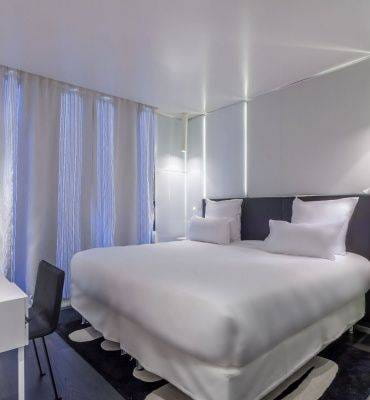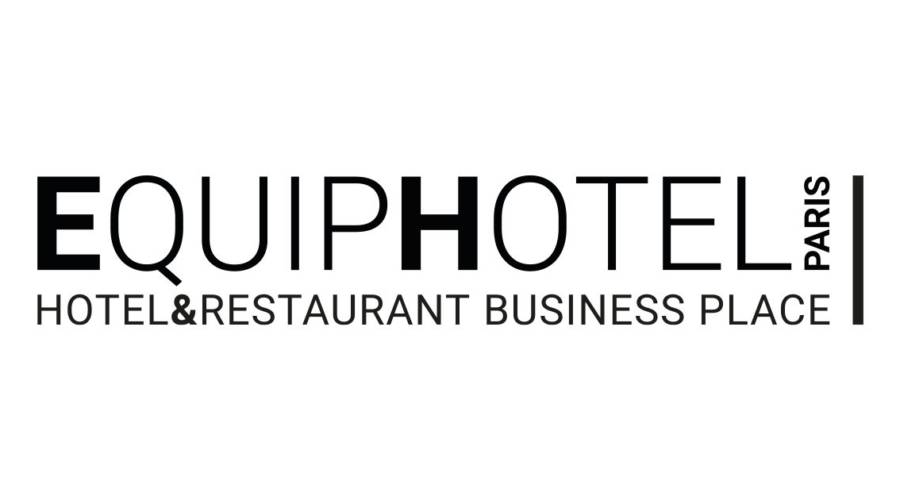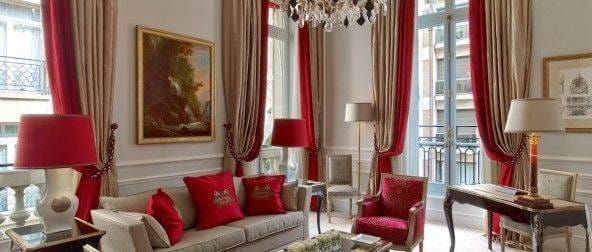Standards of a brand and the “de- standardization” of a luxury experience
We recognize a brand by its signature, its standards. But can we identify a brand without finding the exact same hotel product? This is the challenge that luxury hotels face in the form of franchises. The history of this business model was at the heart of the standardization of the offerings.
Can we develop a chain of luxury hotels today under the same label without stifling the unique identity of each establishment?
For this, the high-end hotel must rethink its label in order to give way to a true concept, to a strong brand identity. It therefore has to create a universe that the clientele can recognize from one hotel to another without giving the impression of ‘déjà vu.’
Thus, we are no longer talking about a hotel chain, but rather a collection of luxury hotels, in which each constituent possesses its own identity, all while forming part of a collective universe. How can we begin to create this universe and construct a community that will sustain the cult of the label?
Creating an extraordinary stay
When we bring up luxury, our mind jumps to the notion of exclusivity and community. Here, we are talking about the luxury of experience, since the hotel industry encompasses a uniquely service-based activity. But it would be interesting to revisit this definition and extend the experience by taking inspiration from a line of boutiques; that is, work in the development of a line of products under one brand, as Hotel Costes has succeeded in doing with its candles, flowers, and music label. In this way, the values of the brand would emanate beyond the walls of the hotel across the commercial products that would be made available in outpost establishments of the brand.
Developing a community around an exclusive service: The Select Club
The idea would therefore be to create a select club across the hotels within a chain in which members could access club benefits and networks during their stay. This club would go beyond the services of a loyalty card and offer another dimension of service that corresponds to the values of the brand and provides access to events, talks, facilities, etc. The London-based chain Soho House is known for this exclusive service, which distinguishes between two types of clienteles. Indeed, while the hotel remains open for everyone, the House is accessible exclusively for members. The Molitor Hotel in Paris, for instance, has launched this service, but it remains limited for now to the Paris hotel, though it could potentially be further developed in line with the range of MGallery Hotels owned by the Accor Group.
The luxury hotel industry is in the process of evolving from a two-pronged approach (global and local) to a three-dimensional one (global, local, AND personal). The brands are replacing “the brand experience” with the “brand relationship” in order to establish trust between the client and the brand. This is the strong point of hotel chains that guarantee their brand’s standards.
However, this is often not enough to inspire the brand dream. In this respect, the franchise model finds its limits in the luxury category.
This article was edited by Judith Tricon Russo, whom I recently met as part of her work on her dissertation on “Networks of Franchises in the Luxury Hotel Trade.” I thought it might be worthwhile for her to present you with some of her reflections on the subject.
Laurent Delporte, an editor and conference speaker, is a strategic expert in the sector of hotels. A visionary, he brings his unique look on hotels in service to the decision-makers in the industry, whether to enhance the development of new projects or strategic visions.
Laurent has visited and audited over 350 hotels across the world and also participates in mystery visits to provide quality control for the world’s finest hotels.


 HOME
HOME












